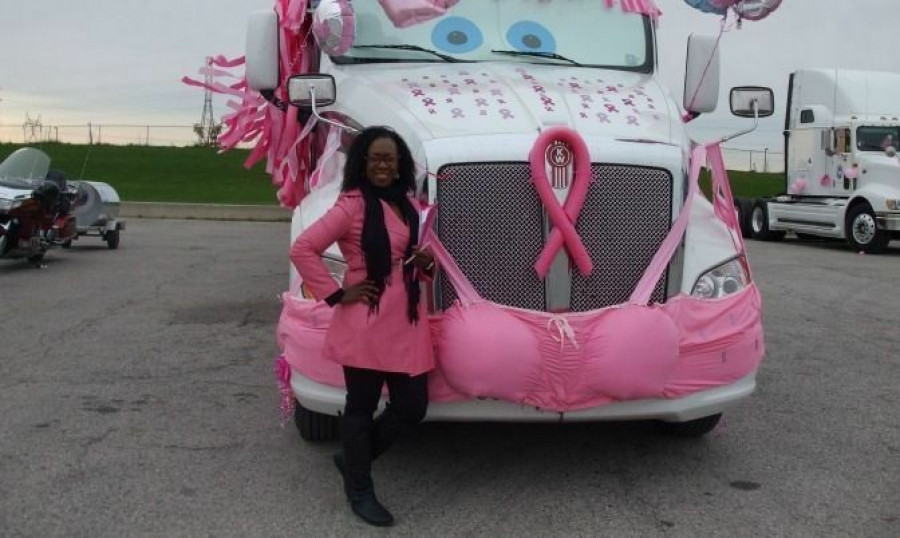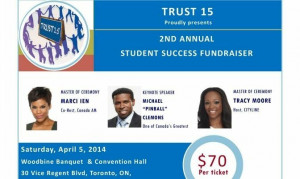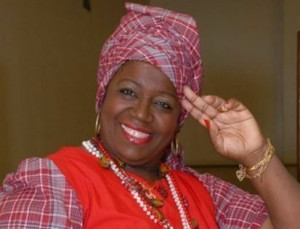One of those unsung heroes in the Black Community is Cheryl Lewis-Thurab, a tireless advocate for breast cancer research and a Community Events Specialist with the Canadian Breast Cancer Foundation (CBCF). I had the opportunity to talk in depth about her career and what the organization is doing for Canadians affected by breast cancer.
How long have you been at the CBCF, and what is your primary role?
I started working with CBCF six years ago in the role of Liaison Officer for the CIBC Run for the Cure. In that role, I oversaw 40 Run Directors in 21 Run sites across Ontario and was responsible for managing the relationship between the Foundation and the Run Directors. This included liaising with the Run Directors on a daily basis, interviewing new Run Directors, providing training, overseeing budgets, logistics, and updates on policy and procedures.
Following that role, I moved on to the position of Community Development Officer, and most recently Community Events Specialist, where I’m responsible for managing over 200, third-party events on behalf of the Foundation.
Have you always worked with nonprofit or charitable organizations?
Actually no, I worked as a Customer Service Supervisor with a telephone company in Trinidad & Tobago.
What’s the reason why you joined the CBCF?
My aunt died of breast cancer in the early seventies. Back then people in our community did not really talk about it, or about sickness in general. It was different in our household as it was never a secret. So although I was very young, I knew first-hand about the effects of breast cancer. Due to that, I really wanted to learn more about breast cancer and saw this job as an opportunity to be a speaker and provide awareness of the issue. I wanted to make a difference.
Do you think with the funds raised for research that things have gotten better?
Considerably. When you look at 1986 till now, the mortality rate of people dying from breast cancer has been reduced by 42%. People are being diagnosed earlier; they are getting better treatment and are living longer.
So many more people are living after breast cancer. We have come a long way!
You know a lot of people who have breast cancer; does it take a toll on you, emotionally?
Yes, I am out speaking at a lot of events, meeting the families of people who have suffered from breast cancer. So yes, there are times when it does get heavy.
But there is also the positive side as well.
I have a friend who was diagnosed with breast cancer twice and had a mastectomy. Now still alive and in her 70’s, she is healthy and happy. This gives me a lot of hope and joy to see how she handled the whole situation and brings hope to me that other people can undergo the treatment and survive.
Great to see the positive attitude towards this.
How often do women need to test?
There is some debate about the starting age to get a mammogram (40+, or 50 years and over) and how often a woman should get tested. As an Events Specialist with the Foundation, I am not technically equipped to provide a professional opinion on this.
Research supports that a mammogram is the best way to find breast cancer early. A few years ago the Foundation advocated for women who are at average risk of developing breast cancer to have access to mammograms from age 40 onwards. The normal recommendation is every 2 years after the age of 50, with women in high-risk categories being tested every year.
Because of my family history with breast cancer, I personally began having mammograms at the age of 35. Since then, I have been getting tested on a yearly basis.
What have been some of your greatest achievements at the CBCF?
I work with third party event organizers to provide them with expertise and support in running successful events on behalf of the Foundation. My greatest achievements are the long-term relationships I’ve built over the years while working closely with the organizers and seeing the events increase in size and fundraising year over year. Knowing that the money raised goes towards making a difference in the lives of others fills me with great pride.
I manage over 200 events annually, made up of large and small campaigns. One of the most successful and also the largest community fundraiser on behalf of the Foundation is Trucking for a Cure, which was started by women in the trucking industry. Over the past 4 years, this event has grown considerably from $35,000 in the first year, to over $70,000 in 2013 and over $200K overall.
Another is the Paint your School Pink fundraising campaign, an idea that was initiated by me. Seeing this grow and adapted in schools across Ontario, with donations more than double over the past four years, is very inspiring for me.
In addition to this, I manage the relationship with Ontario universities for the CIS Shoot for the Cure Women’s Basketball Tournament, which takes place in universities across Canada. Last year, they raised over $40K in Ontario and almost $100,000 Canada-wide.
While it’s great to have all the large events, it’s so important to acknowledge the smaller ones, which are no less important. What I value most is the opportunity to personally meet with the people who work so tirelessly on behalf of the Foundation and to let them know that what they do matters.
Are there any Black focused events?
Typically we have not done outreach to any specific ethnic community, so there has been no focus on the Black community.
Having said that, not a lot of our community event organizers are black, which means not a lot of people in the black community are gaining access to the research done by CBCF. I would love the opportunity to work more closely with the black community and to see more awareness generated among our community members.
Where is the money allocated to?
The money typically goes to 3 areas; Research, Advocacy, Education & Awareness. Each year, a panel of reviewers evaluates all grant applications. Funds raised are then allocated to the various researchers who have been successful in applying for grants.
For 2013, in Ontario alone, the Foundation issued over $8M in research grants.
How can people donate directly to CBCF?
Direct donations can be made via the CBCF website. Individuals can also host a third-party fundraising event.

 By
By 





